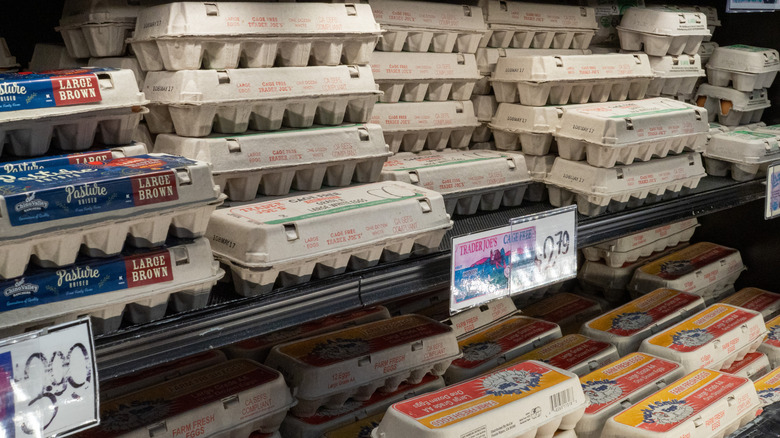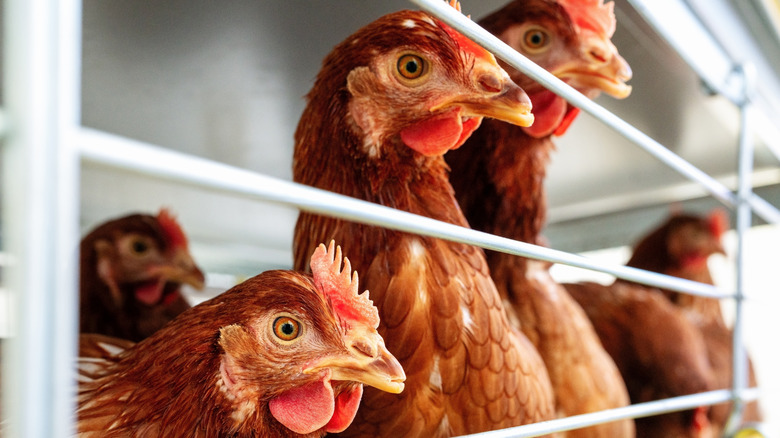If You're Shopping For Eggs At Trader Joe's, There's A Temporary Restriction You Should Know
Amid nationwide egg shortages that are leaving store shelves empty and even prompting large-scale egg theft, Trader Joe's is imposing restrictions across its U.S. stores. Under the new temporary limits, customers at the popular grocery chain will be limited to the purchase of just one dozen eggs per day. As reported by KOIN 6 News, the purchasing constraints are being implemented in an effort to ensure more Trader Joe's customers are able to buy eggs while the product supply shortages continue.
Customers seem to be taking it in stride, for the most part. Commenters on social media reacting to the news, already accustomed to widespread shortages and restrictions for various products during the COVID-19 pandemic — including eggs — are calling the policy sensible and fair. Many are advising their social media peers to simply stop buying eggs for the time being, or to buy from local farmers until available supplies return to normal.
In addition to shortages and restrictions, resulting price hikes are also being felt across the country, with eggs ringing up for as much as $7 or higher for a dozen and in excess of $12 for an 18-pack. Other stores besides Trader Joe's are implementing customer purchase limits as well, with some Kroger locations restricting patrons to the purchase of two cartons per day, and some Whole Foods locations similarly placing limits on how many eggs customers can buy. Some restaurant chains, like Waffle House, are also adding surcharges to menu items that include eggs.
The road to egg shortages and higher prices
The egg shortages and resultant price hikes have been spurred on by a combination of factors, key among them being an ongoing avian flu outbreak that has led to the deaths of over a hundred-million chickens since 2022. But transportation problems, including driver shortages and rising shipping costs, are also playing a role, as are laws governing the production of cage-free eggs in certain states. These laws are cramping egg production numbers by requiring farmers to provide more space between their laying hens, reducing overall chicken population space and, resultantly, egg yields.
Whenever the bird flu virus is detected at a chicken farm, the site's entire hen population is killed as a measure to prevent the virus from spreading. This spells huge losses in terms of egg-laying birds when a large-scale farm is affected, as some of the biggest production facilities house millions of chickens. Relief to the egg shortages and higher prices might not be near at hand. Between December 2023 and December 2024, egg prices rose 36.8%, per the USDA, and the department is predicting a further price hike of 20.3% during 2025. To combat the problem, shoppers may have to get creative, including looking to shelf-stable substitutes like powdered eggs.


